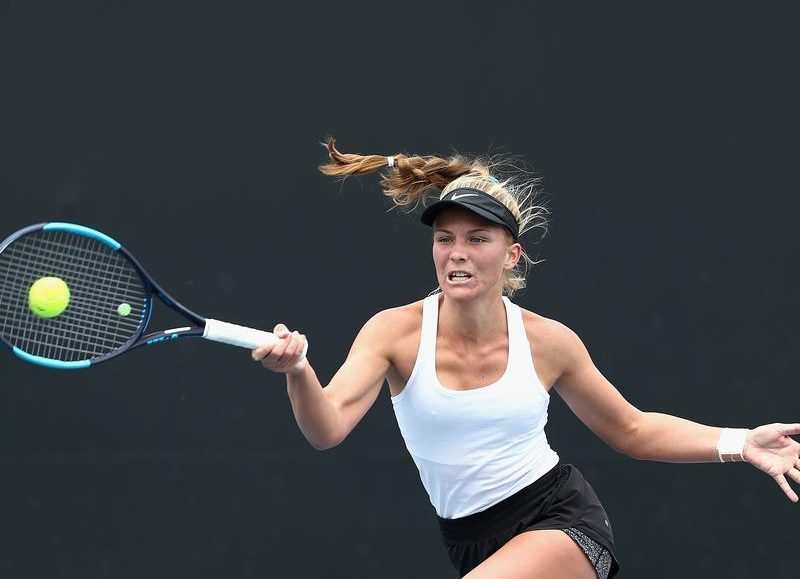
Almost four years since her only appearance in the Australian Open main draw, Maddison Inglis believes she has developed the fighting qualities that could steer her back to the grand slam stage.
The 21-year-old needed every bit of them to scrape through her opening wildcard play-off match at Melbourne Park on Tuesday, as emerging teenager Charlotte Kempenaers-Pocz threatened to produce a major boilover.
Down a break at 3-4 in the deciding set, Inglis rattled off three straight games to snatch a tough 2-6 6-3 6-4 win in a match hampered by an early rain delay and strong winds.
The late rally included a pair of breaks against Kempenaers-Pocz’s powerful serve.
Inglis will face the winner of Alison Bai and Belinda Woolcock in the quarter-finals, with the tournament winner granted a wildcard berth at the the 2020 Australian Open.
“It’s a pretty big prize, one that I’ve had before, which was really good having that opportunity,” Inglis said.
“I feel like I’m a better player for it and I really hope this week goes my way.
“But if it doesn’t, I’m direct into qualifying, so that’s exciting as well.”
Inglis’ appearance in the 2016 Australian Open was a brief one.
She suffered a first-round exit at the hands of 21st seed Ekaterina Makarova.
“My biggest change (since then) is mental,” Inglis said.
“I love the battle. I loved being out there today (against Kempenaers-Pocz) and I loved having to come back.
“I was a set down and I had to change something or do something, which was really cool.
“I really like being in that situation where you have to work it out. I never used to like that.
“I’m training really hard and wanting it a bit more now that I’ve had a little bit of success.
“I’ve definitely changed a lot and it’s for the better, I think.”
Kemenaers-Pocz followed in the footsteps of Ash Barty to qualify for the wildcard playoff by winning the Australian Under-18 girls’ title aged just 15.
“I think I’m going to be seeing a lot of her, she’s a really dangerous player,” Inglis said.
“Her serve (is an asset), she hit her spots really well, which made it tough for me and put a lot of pressure on me to hold my serves.
“She was really, really tough to play and I’m really glad I got through it.”




